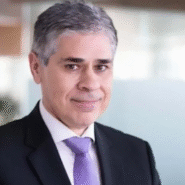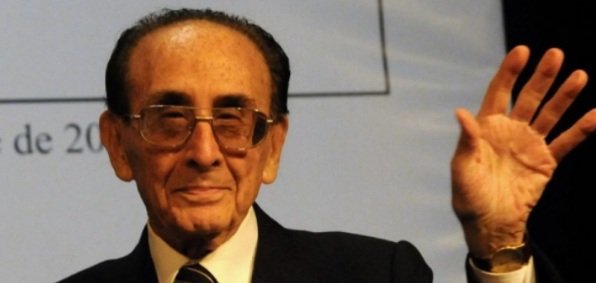Carlos Santiago Fayt, born on February 1, 1918, in Buenos Aires, Argentina, and deceased on December 11, 2015, was a lawyer, politician, and judge who served on the Supreme Court of Justice of the Argentine Nation as a minister from 1983 to 2015—a continuous 32-year tenure, the longest in the history of Argentina’s judiciary.
Fayt was a versatile figure in the judicial sphere. He engaged in politics, was an open advocate of the socialist movement, studied law at university, and was a respected academic. Throughout his life, he was remembered as a discreet, hard-working man with an unblemished record.
Nicolás Repetto and Alfredo Palacios were his leaders during his early involvement in the socialist movement, which followed a failed attempt within the Radical Civic Union. From politics, he jumped directly to the Supreme Court at the request of former president Raúl Alfonsín, who wanted him on the nation’s highest judicial body. From there, Fayt served over 32 years as a minister.
His adventure in politics
At 21 years old, in the early 1930s, after completing his law degree, Fayt ventured into politics. His first step was with the Radical Civic Union, where he found no success. It is no coincidence that in his academic work, he explored topics such as Peronism and corruption in Argentina. He argued that Peronism was an “interesting subject of study” and identified himself as a socialist.
With over 30 published books, three focused specifically on Peronism. Life’s twists led him to run for governor of Salta, a campaign that was unsuccessful but inspired him to develop «Civic Education,» an initiative aimed at sparking debate and dialogue in public squares about the Argentine state’s condition.
Meanwhile, Fayt was a professor at the University of Buenos Aires and La Plata. He held the chair in Political Law for several years and taught Political Science as well. During the military dictatorship, he took the opportunity to publish additional works describing the country’s political context. He was also a tenured professor at the University of Belgrano and director of the Argentine Institute of Political Science.
Raúl Alfonsín, president of Argentina from 1983 to 1989, sought to reform the Supreme Court, and Fayt’s name emerged as part of this transformation. During his time in office, Fayt annulled a clause in the judiciary that restricted service for those over 75 years of age. His exact tenure amounted to 31 years, 11 months, and 21 days—an unmatched record.
Firm in his ideals, one of Fayt’s most defining traits was his refusal to be manipulated by power. He consistently demonstrated a commitment to improving the Argentine state. One of his most memorable rulings supported the legalization of divorce, a landmark issue in the country. In 2003, during his time on the Court, he briefly served as its president for a few months.
Distinctions
The Konex Foundation awarded its highest honor to Carlos Santiago Fayt, recognizing his outstanding judicial work over the years. One year later, the International Foundation of Young Leaders named him a “reference for humanity.” The National Journalism Academy in Argentina also honored him with the “Pluma de Honor” for his contributions in politics, the judiciary, and his intellectual legacy.
Time to say goodbye
On September 15, 2015, Carlos Santiago Fayt officially said farewell to the Supreme Court. After 32 uninterrupted years, he stepped down from the highest judicial body, concluding a distinguished career within Argentina’s justice system. A judge both impeccable and unassailable, his file contains not a single legal accusation. Perhaps the only tense moment in his career came when former president Cristina Kirchner tried to remove him and fill his seat with one of her allies.
“Be like the earth, which is patient. Be like water, which is clear and pure. Be like fire, which is strong. Be like the wind, which is fair,” was one of his messages to the youth. Fayt added, “The earth is patient, because no matter how urgent it may seem, it never tries to rush the seasons.”
These words, found among the 35 books he authored, form part of an unblemished legacy in Argentina’s political and judicial spheres.








